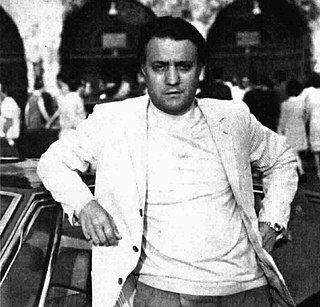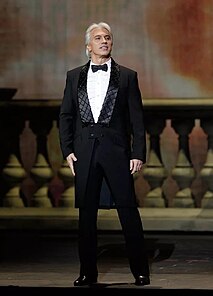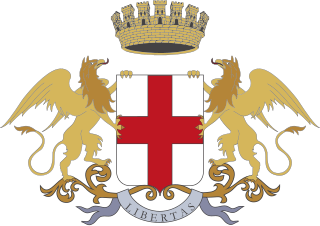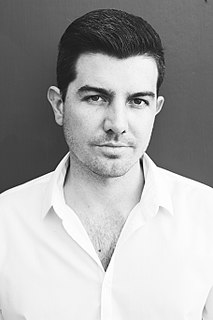Related Research Articles
A baritone is a type of classical male singing voice whose vocal range lies between the bass and the tenor voice-types. The term originates from the Greek βαρύτονος (barýtonos), meaning "heavy sounding". Composers typically write music for this voice in the range from the second F below middle C to the F above middle C (i.e. F2–F4) in choral music, and from the second A below middle C to the A above middle C (A2 to A4) in operatic music, but the range can extend at either end. Subtypes of baritone include the baryton-Martin baritone (light baritone), lyric baritone, Kavalierbariton, Verdi baritone, dramatic baritone, baryton-noble baritone, and the bass-baritone.

Arrigo Boito was an Italian poet, journalist, novelist, librettist and composer, best known today for his libretti, especially those for Giuseppe Verdi's last two monumental operas Otello and Falstaff and his own opera Mefistofele. Along with Emilio Praga and his own brother Camillo Boito, he is regarded as one of the prominent representatives of the Scapigliatura artistic movement.

Simon Boccanegra is an opera with a prologue and three acts by Giuseppe Verdi to an Italian libretto by Francesco Maria Piave, based on the play Simón Bocanegra (1843) by Antonio García Gutiérrez, whose play El trovador had been the basis for Verdi's 1853 opera, Il trovatore.

Tito Gobbi was an Italian operatic baritone with an international reputation.

Simone Boccanegra was the first Doge of Genoa. He became doge in 1339, but was ousted from power six years later. He regained the position in 1356, retaining it until his death in 1363.

Piero Cappuccilli was an Italian operatic baritone. Best known for his interpretations of Verdi roles, he was widely regarded as one of the finest Italian baritones of the second half of the 20th century. He was enormously admired within the field of opera for his rich and abundant voice, fine vocal technique and exceptional breath control. In the great Italian tradition he fused words and music into elegant phrases. He focused on Italian repertory, particularly the operas of Verdi, singing 17 major roles.

Joan Pons Álvarez is a Spanish operatic baritone, known internationally as Juan Pons.

Karl Gustaf Ingvar Wixell was a Swedish baritone who had an active international career in operas and concerts from 1955 to 2003. He mostly sang roles from the Italian repertory, and, according to The New York Times, "was best known for his steady-toned, riveting portrayals of the major baritone roles of Giuseppe Verdi — among them Rigoletto, Simon Boccanegra, Amonasro in Aida, and Germont in La traviata".

Dmitri Aleksandrovich Hvorostovsky was a Russian operatic baritone.
The surname Boccanegra originated in northern Italy during the 13th century.

Carlos Álvarez is a Spanish baritone who has had a major international opera career since the early 1990s. His recording of the title role in Isaac Albéniz's Merlin with Plácido Domingo as King Arthur won a Latin Grammy Award in 2001, and his recording of the role of Ford in Giuseppe Verdi's Falstaff won the Grammy Award for Best Opera Recording in 2006.
Phillip Joll is a Welsh operatic baritone known for his portrayal of Wotan in Wagner's Der Ring des Nibelungen.
Geoffrey William Chard AM is an Australian opera singer. He was a foundation member of the National Opera of New South Wales.

Gabriele Adorno (1320–1383) was the fourth Doge of Genoa. A member of the Adorno family, he was elected on March 14, 1363 to succeed Simone Boccanegra, who had died in office. He remained in the position until August 13, 1370, when he was deposed by the people of Genoa. He was succeeded by Domenico di Campofregoso.
Nigel Levings is an Australian stage lighting designer. He has designed lights for over 500 productions. He works extensively on operas, and has designed a large portion of Opera Australia's repertoire. Some of his most significant works include operas such as The Demon at the Bregenz Festival and for Zurich Opera; Billy Budd for the Welsh National Opera, Opera Australia, Canadian Opera Company, and for the English National Opera; Nabucco for Opera Australia; Wozzeck for Opera Australia; L'Orfeo for Innsbrucker Festwochen der Alten Musik and the Berlin State Opera; A Midsummer Night's Dream for the 1994 Edinburgh Festival; La Belle Vivette for the English National Opera; Simon Boccanegra for the Royal Opera House, Washington National Opera, and Dallas Opera; Falstaff for Théâtre du Châtelet; Idomeneo, Turandot, and The Barber of Seville for the Houston Grand Opera; and Queen of Spades for the Dallas Opera.
Maija Kovalevska is a Latvian soprano opera singer. She is a student of Italian soprano Mirella Freni.
Elijah Moshinsky was an Australian opera director, theatre director and television director who worked for the Royal Opera House, the Metropolitan Opera, the Royal National Theatre, and BBC Television, among other organisations.

James Andrew Olds is an Australian bass. He holds a Masters of Music in Performance from the Guildhall School of Music and Drama, London, and currently performs with Opera Australia at the Sydney Opera House.
George Petean is a Romanian operatic baritone.
References
- ↑ "IT'S A REAL HORSE OPERA!". The Australian Women's Weekly . Vol. 31, no. 19. 9 October 1963. p. 17. Retrieved 14 February 2017– via National Library of Australia.